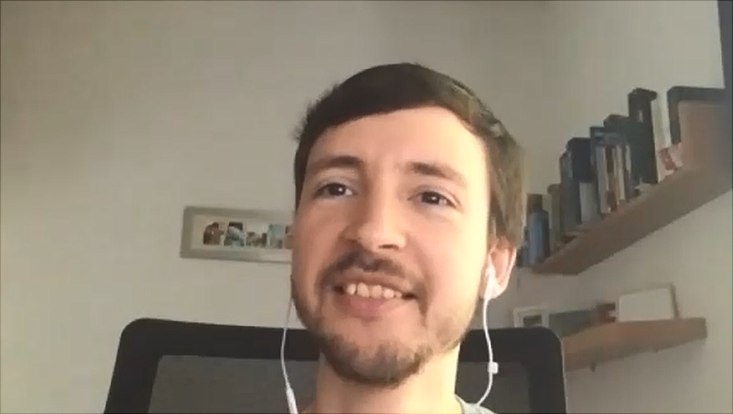People of MINGZ: Scholarship Holder Pascal Stienemeier
11. Juli 2022

Foto: UHH/Stienemeier
During the pandemic, Pascal Stienemeier’s research progress was stalling. For five months, the PhD candidate received a MINGZ short-term scholarship to finalize his project.
I started my PhD project in particle physics at Universität Hamburg in mid-2018. I’m part of the DESY Theory Group, which explores the fundamental interactions of nature and the fabric of matter, space and time.
Our group is developing and maintaining a computer program that simulates the collision of particles. This project is right at the interface of theoretical and experimental physics. We don’t have to come up with our own theories, but we need to understand them in order to implement them and to translate them into data. Then we’ll pass on the data to the experimental physicists, who go on to compare our simulated data with their measurements. My PhD project is part of this endeavor: I have been trying to increase the precision of our predictions on the phase space in which we expect specific particles.
A coffee break can make a difference
By the end of last year, everything was technically working: I already had quite a few results. But – I knew they were wrong. I could have written the results down and completed my PhD then and there, but I didn’t want to present something that is only approximately correct. It’s hard to convince someone that you are close to getting it right. And the pandemic made things more difficult. Having a chat with your colleagues during lunch or coffee breaks can make a big difference. Quite often people make suggestions or give advice on how to make something work or how to achieve a result more easily. These conversations just didn’t exist during the pandemic.
I read about the short-time financial aid from the MIN Graduate Center for PhD candidates impacted by the pandemic from the MINGZ newsletter. I thought my situation was fitting and wrote an application. My supervisors were supportive as well. The application process seemed pretty simple and fair, and I was able to receive a MINGZ short-term scholarship for five months.
Today, I have results that are not only technically working but are also correct, so I can present them with much more confidence. I’ll probably be able to defend my dissertation before this semester is over. After that, I want to try my luck in the industry. Through my PhD project, I have gained quite a bit of experience in writing computer programs. This is valuable knowledge for a career in software development, even if the application may have nothing to do with physics at all.
